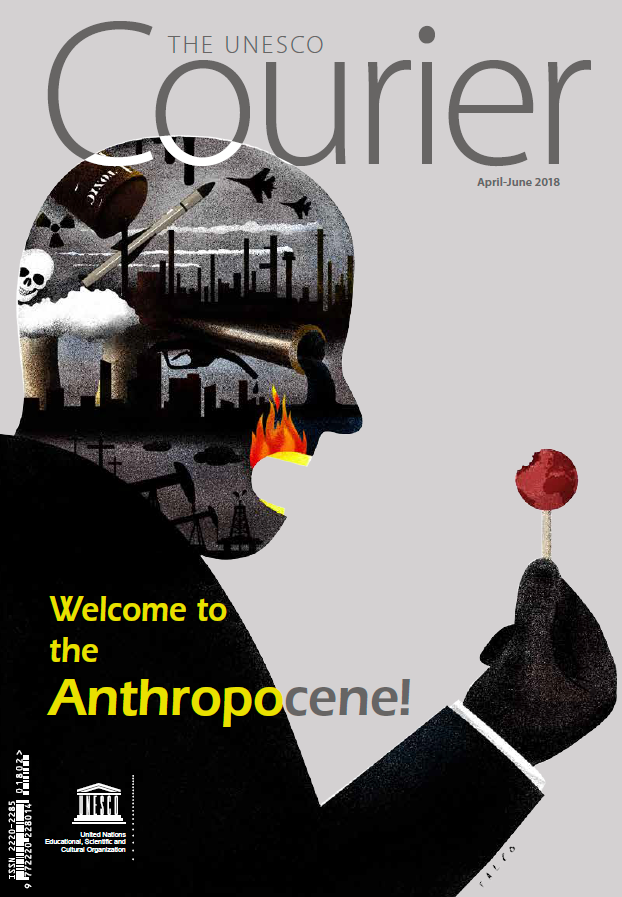Food in the Anthropocene: the EAT–Lancet Commission on healthy diets from sustainable food systems
The EAT-Lancet Commission's report, titled "Food in the Anthropocene," addresses the pressing global challenges of ensuring both human health and environmental sustainability in the context of food production and consumption. The Anthropocene refers to the current epoch characterized by significant human influence on the Earth's ecosystems. This comprehensive report outlines the dire need for a transformation in the way we produce and consume food to achieve a sustainable future
The Anthropocene is marked by significant changes in the Earth's systems, largely driven by human activities, including agriculture. Food systems are a major contributor to environmental degradation and are increasingly threatening global health. The report argues for the urgent need to align human diets with sustainable food production to address the dual challenge of feeding a growing population and safeguarding the planet.
Key Findings:
1. Current Diets and Health Implications: The report highlights that current global diets, characterized by high consumption of unhealthy foods, contribute to a range of health issues, including malnutrition, obesity, and diet-related diseases. These diets are a leading cause of premature death and disability.
2. Environmental Impact: The environmental impact of current food production systems is staggering. Agriculture is a major driver of biodiversity loss, deforestation, greenhouse gas emissions, and water pollution. Addressing these environmental challenges is critical for the planet's long-term well-being.
3. Healthy Diets Within Planetary Boundaries: The EAT-Lancet Commission proposes a "planetary health diet" that represents a flexitarian eating pattern, with an emphasis on plant-based foods. This diet is designed to meet nutritional needs while staying within the boundaries of sustainable food production.
4. Balanced Diet Components: The recommended diet consists of diverse and balanced food groups, including fruits, vegetables, whole grains, legumes, nuts, and modest amounts of animal-source foods (e.g., fish, poultry, and dairy). Red meat and sugar consumption should be significantly reduced.
5. The Role of Food Production: Sustainable food systems are crucial to achieving the planetary health diet. This includes shifting towards regenerative agriculture, reducing food waste, and addressing issues like overfishing.
6. Equity and Food Access: Achieving sustainable diets must also consider equity and food access issues. The report emphasizes the need to ensure that everyone has access to affordable, nutritious, and culturally appropriate food.
7. Government and Private Sector Roles: Governments and the private sector play essential roles in shaping food systems. Policy changes, subsidies, and incentives can support the shift towards sustainable diets.
Discussion:
The EAT-Lancet Commission's report is groundbreaking in its approach to addressing the interconnected challenges of diet, health, and the environment. It recognizes that these challenges are inextricably linked and that addressing one without considering the others is insufficient.
1. A Holistic Approach: The report's call for a planetary health diet reflects a holistic approach to human and environmental well-being. It recognizes that our diets have profound implications for both our health and the health of the planet.
2. Balancing Act: Achieving a balance between providing nutritious food for a growing global population and reducing the environmental impact of food production is a complex challenge. The planetary health diet offers a potential solution by outlining a framework for sustainable and healthy eating.
3. The Role of Agriculture: The report acknowledges the central role of agriculture in this challenge. Transforming agriculture to be more sustainable and regenerative is essential for achieving the recommended diet while minimizing environmental harm.
4. Cultural and Societal Aspects: It's important to recognize that the transition to sustainable diets is not solely a matter of changing individual eating habits. Cultural, societal, economic, and political factors all play a role in shaping our food choices and systems.
5. Global Collaboration: Achieving the goals outlined in the report requires global collaboration among governments, the private sector, civil society, and individuals. It is not a challenge that can be addressed by any one group in isolation.
Conclusion:
The EAT-Lancet Commission's report provides a compelling case for rethinking our approach to food production and consumption. It highlights the urgent need to address the interconnected challenges of diet-related health issues and environmental sustainability. The planetary health diet offers a roadmap for a more sustainable and healthy future, but its implementation will require concerted efforts at all levels of society.
By embracing the recommendations outlined in the report and working together to transform our food systems, we have the opportunity to improve human health, protect the environment, and create a more equitable and sustainable world for future generations. The report serves as a call to action for individuals, policymakers, and businesses to prioritize the well-being of both people and the planet in the choices we make regarding food.








